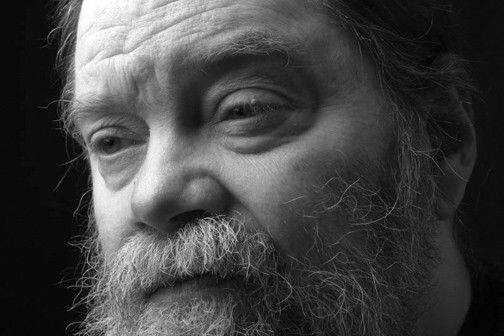Erickson finds redemption on first record in 15 years

To truly appreciate Roky Erickson's "True Love Cast Out All Evil," released Tuesday on Anti- Records, it's best to first know Erickson's backstory.
The lead singer of seminal psychedelic band the 13th Floor Elevators, Erickson was arrested in 1969 for marijuana possession and eventually jailed in the Rusk Maximum Security Prison for the Criminally Insane, after pleading insanity.
Incarcerated with murderers and rapists, Erickson was subjected to heavy doses of Thorazine and electroshock therapy. While he had gone into prison with problems of drug abuse and schizophrenia, the state of Texas released him in much worse condition, a shell of the young man who'd had such a promising musical career.
And yet, through the years, a light would occasionally shine through. Erickson released a number of albums from the '70s to the '90s. While the subjects -- aliens, ghosts, zombies -- often reflected the mind of a man suffering from mental illness, his musical skills seemed to remain strong.
Erickson's status as an "acid casualty" had fans and music buffs lumping him in with fellow burn-outs Syd Barrett (Pink Floyd) and Skip Spence (Jefferson Airplane, Moby Grape). But the stories of Barrett and Spence never included a return to sanity.
That's where this new album comes in. Over the course of the last decade, Roky's brother Sumner and son Jegar have assisted him in the struggle to return to a "normal" life. Back on his medication, Erickson began playing live shows again several years ago, and has even reunited with ex-wife Dana.
"True Love Cast Out All Evil" is the story of Erickson's redemption. It's a strange and sometimes frightening journey, but one worth taking. Coming from a man who lost more than three decades of his life to the mistakes he made, but mostly that authorities made, it is a surprisingly hopeful album.
The songs on the record were written over a period of many years. Some came from his time at Rusk, others from the dark years that followed and some are much more recent. They reflect what has been a long journey.
The hymn-like "Devotional Number One" kicks off the album with a recording from Erickson's incarcerated days. It's immediately followed by the twangy "Ain't Blues Too Sad," which sets the sad tone for the first half of the album.
"Goodbye Sweet Dreams" is the first track where Erickson and Austin band Okkervil River really show the rocking of which their capable.
The first half of the record concludes with the obviously autobiographical "Please, Judge," which finds the singer begging not to have a young man sent away. As the background noise grows to an almost deafening tone, one can only imagine the horrors Erickson has been through in his life.
How he is able to perform the song without cracking defies logic.
But for all the darkness of the first part of the record, Erickson lets his optimism show in the last several songs. The title track, "Forever," "Think Of As One" and "Birds'd Crash" all set a positive tone.
The title of the closer "God Is Everywhere" says it all about Erickson's current state of mind.
Thanks for reminding us, Roky. It's good to have you back.
My spin: B+
Roky Erickson and Okkervil River have crafted a gem in "True Love Cast Out All Evil." Okkervil frontman and producer Will Sheff did a wonderful job of choosing the songs and of channeling the energy of the enigmatic frontman.
Sheff also makes this one of the most worthwhile set of liner notes I've seen in a while. Besides complete lyrics, 10 of the book's 20 pages are devoted to Sheff's account of Erickson's life and his experiences working with him. Near the end, he gives readers this truly touching note:
I'm a cynical person, and I generally don't believe stories about miracles. However, having personally seen what's happened in Roky's life, I feel surprised to hear myself vouching that his recovery is real, that nothing in here is made up, and that being inside that story, being a footnote to that story, makes someone feel humbled and small, which is a good way to feel.
In 65 words, Sheff has said what I've tried for 700 to say. This is a good record and an even better story. For fans, it should be owned (on CD or LP), experienced and enjoyed.
